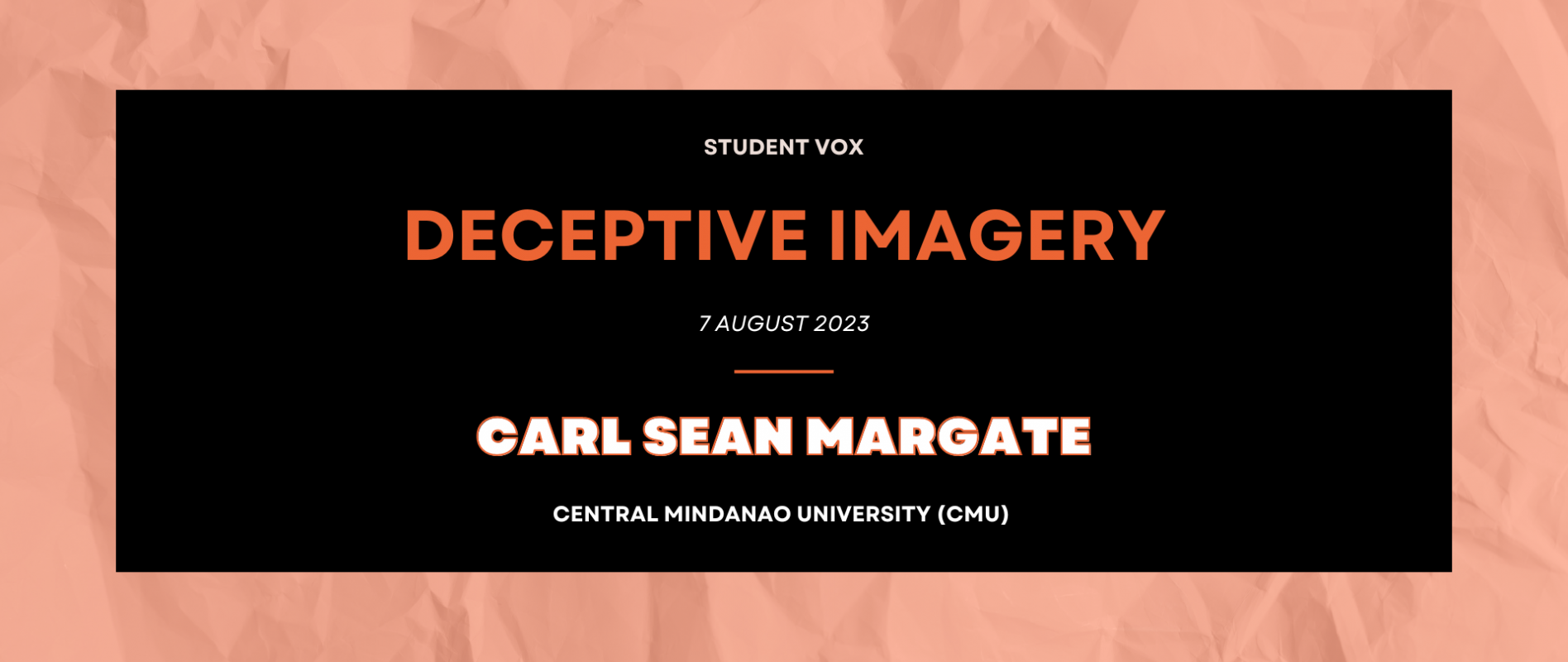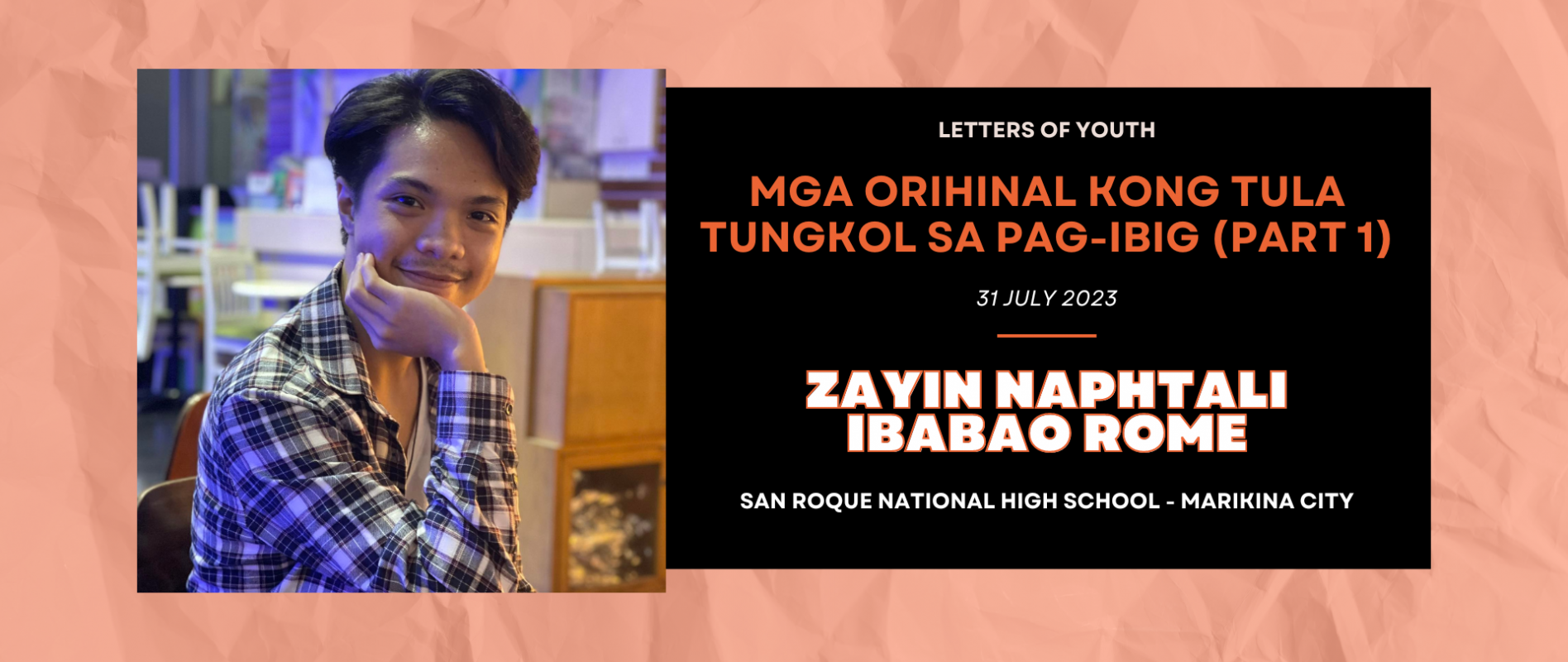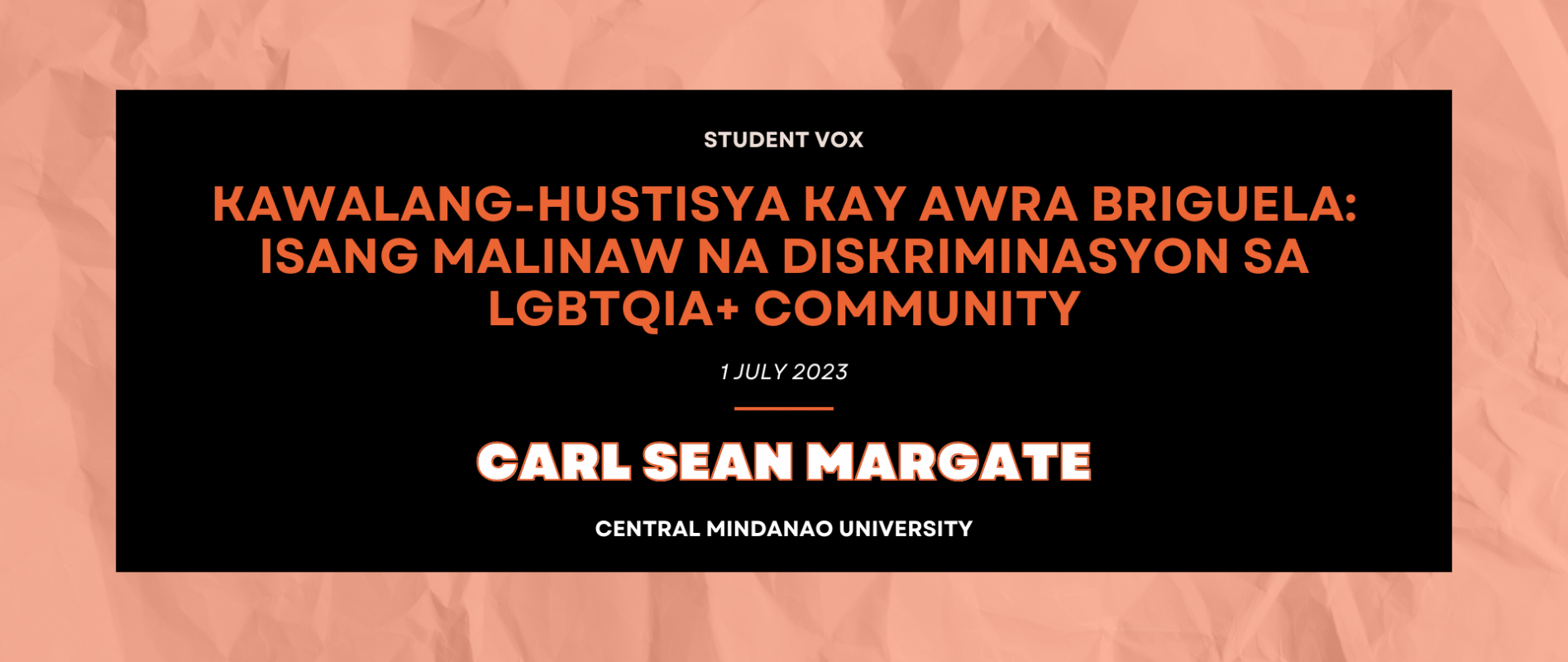ON BLOODSHED AND BENEVOLENCE
Before you exclaim in outrage, curl yourself into a question mark first.
When war is slipped under our doors, one of the first things we do is to defend ourselves. In most cases, defense means to defeat the opponent. Wars brought by disagreements cause words to transform into daggers, stabbing each bone of humanity. The scarred people break out from silence, creating noises similar to the sound of marching soldiers, to give a taste of revenge to the enemy.
“War is what happens when language fails,” said Margaret Atwood. Because of the divisions of beliefs and differences of perspectives, many of us lose the senses of hearing and feeling.
In this age where almost everyone can express their thoughts and opinions, may it be offline or online, engaging in feuds has become a routine for many. Wrath is slowly driving the world. When a problem arrives in our society, we tend to create more of it because we could not arrive at a consensus. Our political and religious ideologies put us in a back-and-forth seesaw game where no one is willing to step down, or both refuse to balance things out.
During World War I, trenches became common on the Western Front. These were long narrow channels dug into the ground where soldiers live to protect themselves from poisonous gases and machine gun fires. Because of the prolonged exposure of their feet in the muddy and damp conditions, many developed an infection called “trench foot.” Like these soldiers, we tend to live our lives in trenches. We are so afraid to receive the opinions of others yet we fire and force ours at the same time. This prolonged conflict has given rise to an infection called “hatred.”
There might be a thin line between love and hate, but we should not, ever, lose our faith in love. The Christmas Truce between the Germans and British troops is probably one of the most poignant moments in the first world war. On Christmas Eve of 1914, the Germans started singing “Silent Night” from their trenches. On the opposite side, the British joined the singing of carols and both began greeting each other. The next morning, the Germans rose from their trenches and waved their hands to show that they intend no harm. British soldiers soon joined them then they exchanged gifts of cigarettes, food, and wine. Henry Williamson, one of the British soldiers, asked a German why they are fighting for freedom when it was they who started the war. But the German answered, “Excuse me English comrade, we are fighting for freedom for our country.” It’s funny how fights are mostly not a battle between humans but of opinions.
Although the ceasefire was short-lived, it was proof that beneath the violent clash of weapons, you cannot really drive out the goodness in each person. How beautiful it could have been if this was how the wars ended. Sadly, they continued.
More than a century later, peace is still no easy feat. But if the truce existed in the history of mankind, we can make it happen once again and sustain it. Perhaps, these battles will never end, these divisions will never crumble. But if we learn to rise up from the trenches we made, the world would be a kinder place to live in. Before you aim your gun at someone’s head, dive into his/her mind first. Before you throw criticisms, make sure to speak the right words. Before you claim someone’s territory, know where your feet belong.
François Fénelon said, “All wars are civil wars because all men are brothers.” No matter how wicked can someone be, goodness will always bring him/her to his/her knees.
Before you point your sword or arrow to someone, ask yourself: “What made him/her point his/hers to you?”
To read more about the Christmas Truce, here’s the reference I used: https://www.britannica.com/event/The-Christmas-Truce














